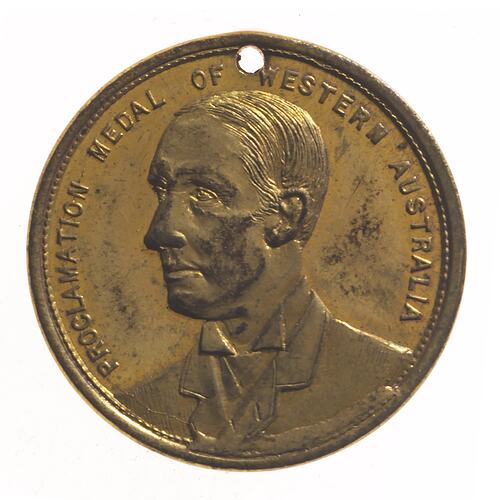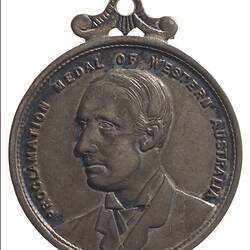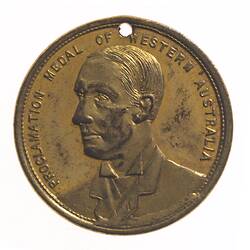William Cleaver Francis Robinson was born in 1834 in Country Westmeath, Ireland. He was educated at the Royal Naval School, Surrey, and entered the colonial service in 1855 as a private secretary to his older brother Hercules, lieutenant-governor of St Kitts. When Hercules was appointed governor of Hong Kong, Robinson accompanied him. His privileged background quickly paid off, and in 1862 he received his own vice-regal appointment, as president of Montserrat, in the West Indies. Cementing his social status, he married Olivia Edith Deane, daughter of the bishop of Meath. By 1865 he was administering the government of Dominica, and in May 1866 was appointed governor and commander-in-chief of the remote Falkland Islands. He later described the islands as the 'fag end of the world'. In 1870 he was made governor of Prince Edward Island, soon to be part of Canada. In 1874 he was made governor of the Leeward Islands, and less than a year later assumed the administration of Western Australia. He fulfilled his directive from the Colonial Office to discourage responsible government and independence from Britain. Robinson moved on two years later, appointed governor of the Straits Settlements.
In April 1880 Robinson was appointed governor of Western Australia. He acquired a reputation for careful and economical governance, but found he was hindered by a permanent non-official elected majority in the Legislative Council, which could impede his legislative program and expenditure. However, he did much to improve Perth's cultural life through his devotion to music.
In 1883 Robinson was appointed governor of South Australia, in recognition of his success as an administrator. He exerted a moderating influence over local politicians, but his role was essentially symbolic. He was able to associate with a range of cultural groups, including supporting the establishment of a chair of music at the University of Adelaide. He composed many songs, including several which became popular throughout Australia, as well as a comic opera later performed at Melbourne's Princess Theatre. He also played the violin and sang. He is said to have entertained more people at Government House than any previous governor. He also published a paper on the physical geography of the south-west of Western Australia.
In 1887 Robinson declined the governorship of Hong Kong, not wishing to return to its climate. From March to November 1889 he was acting governor of Victoria, but was not appointed to the position, the British Government now preferring to appoint inexperienced noblemen to prestigious gubernatorial positions. Robinson was subsequently chosen to inaugurate parliamentary government in Western Australia. Before he left London he assisted the Colony's delegates and the Colonial Office in drafting the Constitution bill, and took the new Constitution to Perth in October 1890. His arrival for a third time was widely acclaimed since he knew more about the colony than any other imperial officer. He arranged for the first elections of the Legislative Assembly, chose the first premier, John Forrest, and nominated members of the Legislative Council. His practical role in politics thereafter diminished. Robinson retired in March 1895, returned to London and accepted several company directorships. He was not offered future colonial posts, and never attained the status of his better-known brother.
Robinson died in South Kensington, London, on 2 May 1897. He was survived by his wife, three sons and two daughters.
References:
Australian Dictionary of Biography.
More Information
-
Keywords
-
Localities
-
Authors
-
Article types


